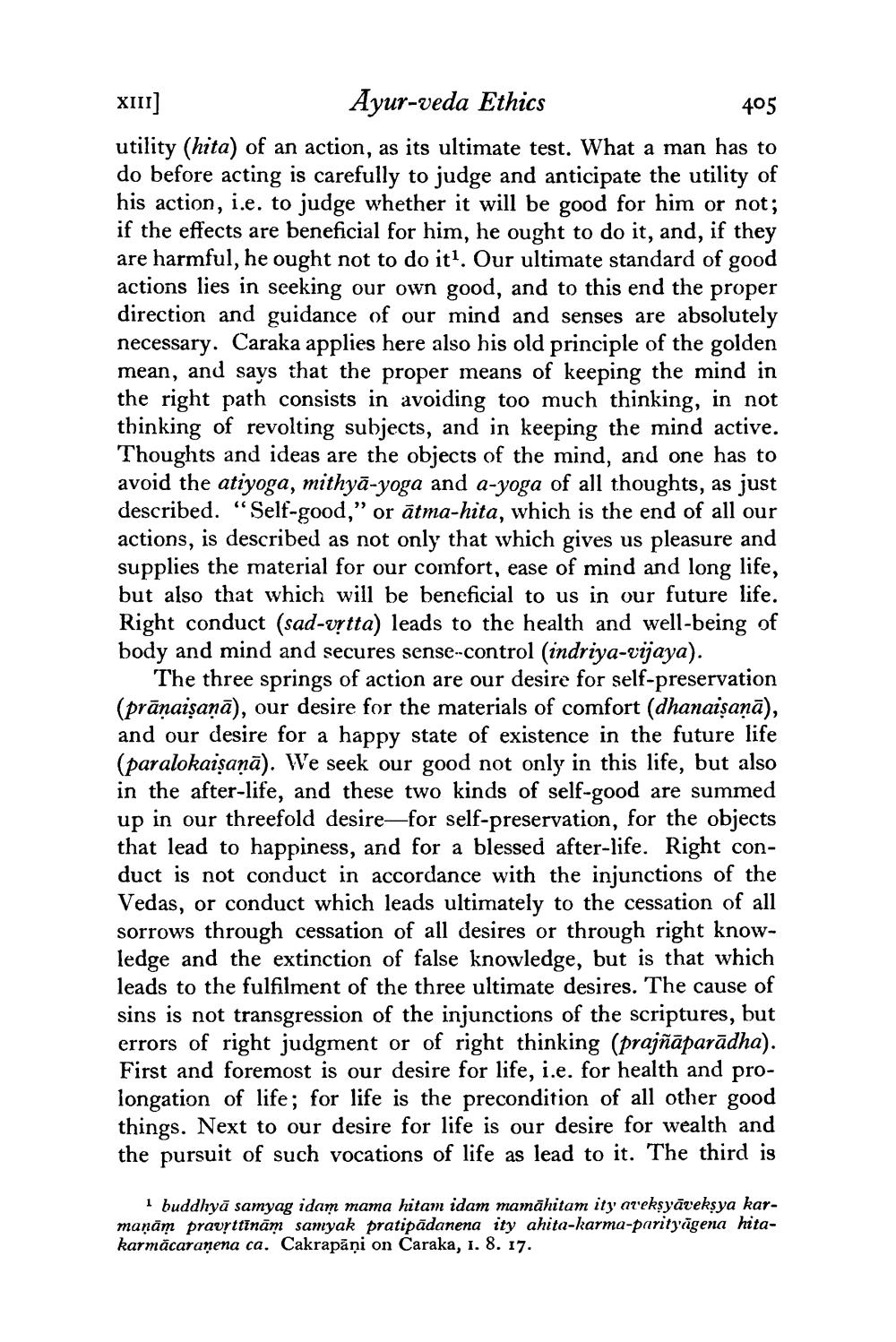________________
XII] Ayur-veda Ethics
405 utility (hita) of an action, as its ultimate test. What a man has to do before acting is carefully to judge and anticipate the utility of his action, i.e. to judge whether it will be good for him or not; if the effects are beneficial for him, he ought to do it, and, if they are harmful, he ought not to do it?. Our ultimate standard of good actions lies in seeking our own good, and to this end the proper direction and guidance of our mind and senses are absolutely necessary. Caraka applies here also his old principle of the golden mean, and savs that the proper means of keeping the mind in the right path consists in avoiding too much thinking, in not thinking of revolting subjects, and in keeping the mind active. Thoughts and ideas are the objects of the mind, and one has to avoid the atiyoga, mithyā-yoga and a-yoga of all thoughts, as just described. “Self-good,” or ātma-hita, which is the end of all our actions, is described as not only that which gives us pleasure and supplies the material for our comfort, ease of mind and long life, but also that which will be beneficial to us in our future life. Right conduct (sad-vrtta) leads to the health and well-being of body and mind and secures sense-control (indriva-vijaya).
The three springs of action are our desire for self-preservation (prāņaişaņā), our desire for the materials of comfort (dhanaişaņā), and our desire for a happy state of existence in the future life (paralokaişaņā). We seek our good not only in this life, but also in the after-life, and these two kinds of self-good are summed up in our threefold desire—for self-preservation, for the objects that lead to happiness, and for a blessed after-life. Right conduct is not conduct in accordance with the injunctions of the Vedas, or conduct which leads ultimately to the cessation of all sorrows through cessation of all desires or through right knowledge and the extinction of false knowledge, but is that which leads to the fulfilment of the three ultimate desires. The cause of sins is not transgression of the injunctions of the scriptures, but errors of right judgment or of right thinking (prajñāparādha). First and foremost is our desire for life, i.e. for health and prolongation of life; for life is the precondition of all other good things. Next to our desire for life is our desire for wealth and the pursuit of such vocations of life as lead to it. The third is
1 buddhyā samyag idam mama hitam idam mamāhitam ity areksyāveksya karmaņām pravrttinām samyak pratipādanena ity ahita-karma-parity'āgena hitakarmăcaraṇena ca. Cakrapāņi on Caraka, 1. 8. 17.




